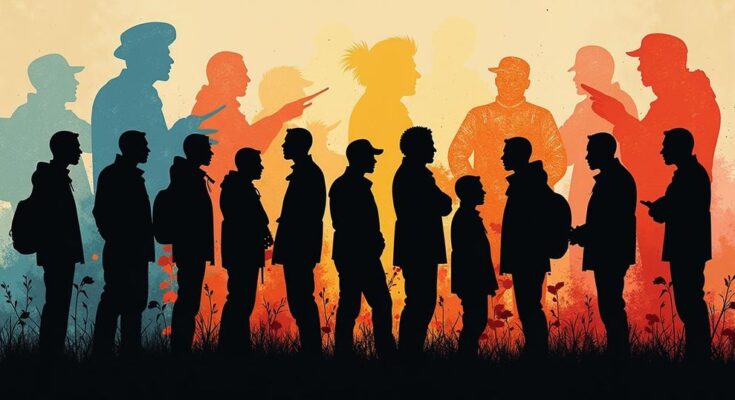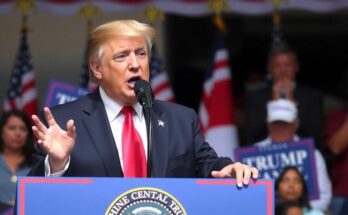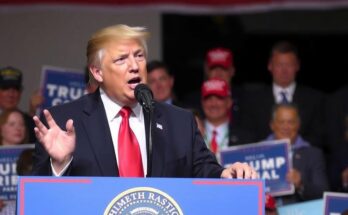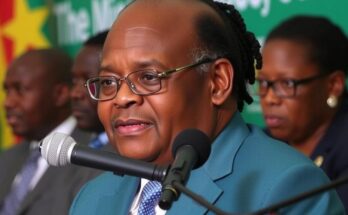At the United Nations, President Nayib Bukele defended his anti-gang campaign in El Salvador, which resulted in over 82,000 arrests, claiming it restored peace to the country. He cited significant reductions in violence and the revival of tourism as evidence of success, while acknowledging criticism from human rights groups regarding detentions and prison conditions.
President Nayib Bukele of El Salvador presented a robust defense of his administration’s anti-gang measures during his address at the United Nations General Assembly. He proclaimed that his country’s ongoing campaign against gangs has succeeded in restoring tranquility to the streets. Bukele asserted, “In the last five years, El Salvador was reborn, we returned the streets of our country to our people.” Initiated in March 2022, this crackdown on gang-related violence was underpinned by a state of emergency that facilitates arrests without prior court authorization, resulting in the detention of approximately 82,000 suspected gang members. Emphasizing the positive outcomes of these measures, Bukele stated, “Some say that we have imprisoned thousands, but the reality is that we have freed millions. Now it’s the good people who live freely, without fear, with their freedoms and human rights fully respected.” Bukele asserted that the transformation of El Salvador from a country marked by rampant violence, previously known as the murder capital of the world, to the safest nation in the Western Hemisphere represents one of the greatest challenges successfully overcome by his administration. He noted that El Salvador has not only reclaimed its streets for the citizens but has also invigorated its tourism sector, encouraging international events including surfing and sporting activities. The president highlighted that this movement provides a safe haven for thousands of Salvadorans who had previously fled their homeland due to violence and poverty, allowing them to return. Furthermore, Bukele defended the state of political freedoms in El Salvador, countering allegations of repression. “In El Salvador, we don’t imprison our opposition, we don’t censor opinions, we don’t confiscate the assets of those who think differently, we don’t arrest people for expressing their ideas,” he asserted. “In El Salvador, your freedom of expression, as well as your private property, will always be protected,” he added. While Bukele’s administration has received widespread acclaim for its crime reduction strategy, various human rights organizations express concerns regarding the methods deployed, particularly with respect to the potential detention of innocent individuals and the conditions within the prisons.
The article discusses President Nayib Bukele’s address at the United Nations General Assembly, where he highlighted the success of his government’s crackdown on gang violence in El Salvador. Since the inception of this campaign in March 2022, under a declared state of emergency, Bukele’s administration has detained numerous individuals suspected of gang affiliation. This approach has garnered significant attention, both for its considerable impact on reducing crime rates and for the departure from traditional judicial processes regarding arrests. The juxtaposition of Bukele’s claims of improved safety and the dissent from human rights advocates sets the stage for a complex and ongoing dialogue about governance, civil liberties, and public safety in El Salvador.
In conclusion, President Nayib Bukele’s discourse at the United Nations underscores a multifaceted approach to addressing gang violence in El Salvador. His claims of successfully transforming the nation into a safer environment highlight the delicate balance between security and human rights. While significant reductions in crime have been reported, the critiques from human rights organizations exemplify the ongoing challenges faced by his administration. Further engagement with these issues remains imperative for continued progress in fostering a safe and just society.
Original Source: ticotimes.net




